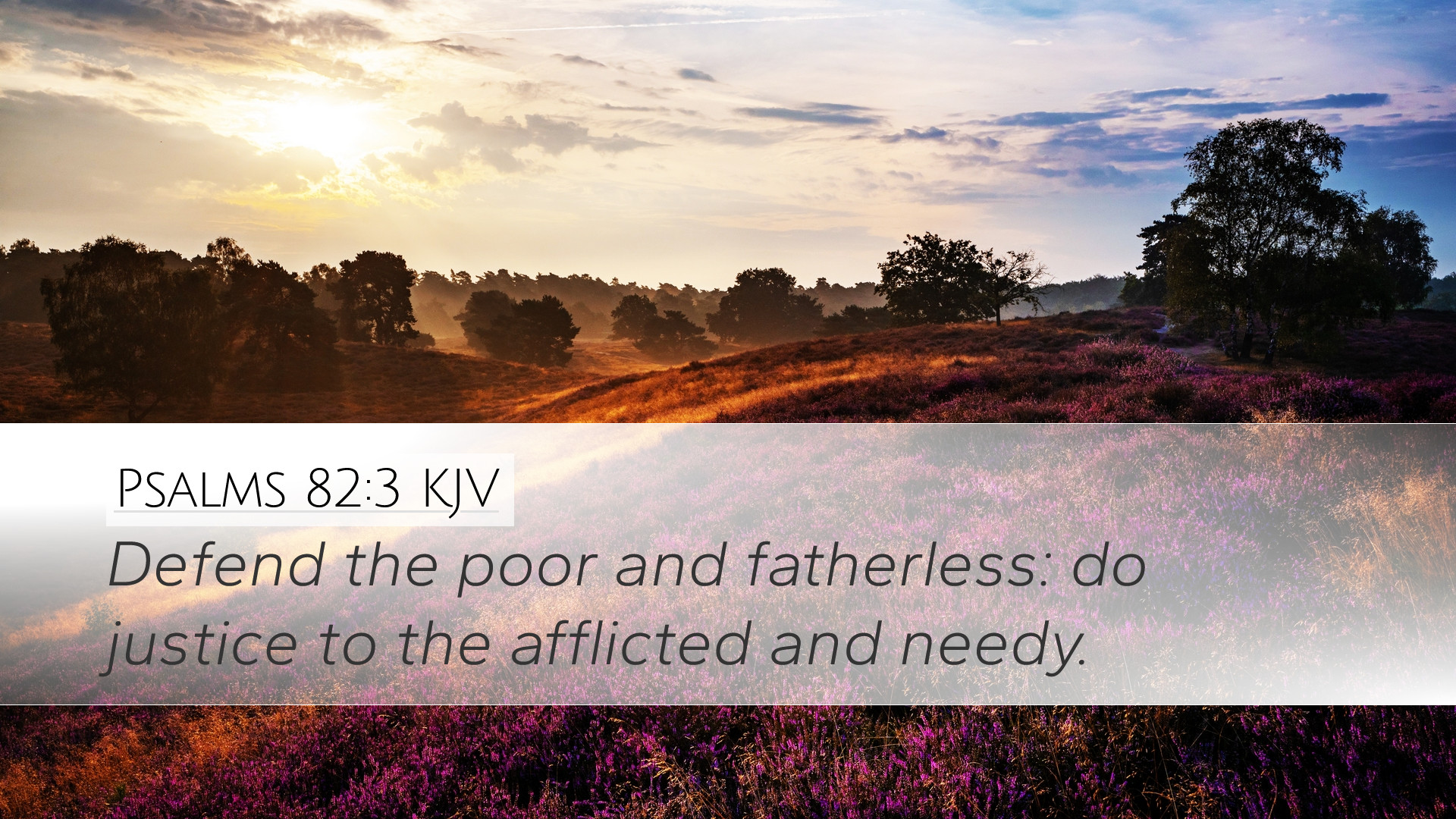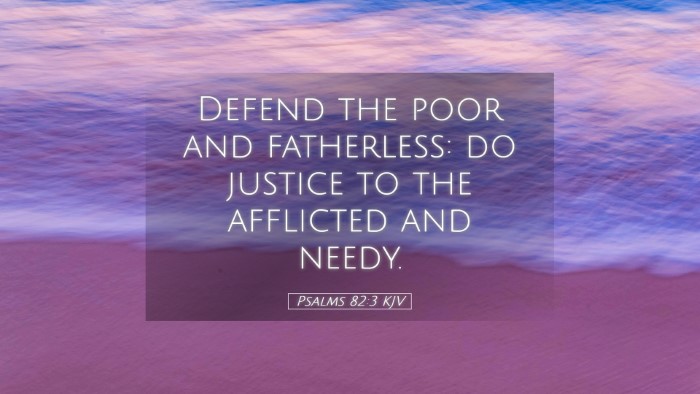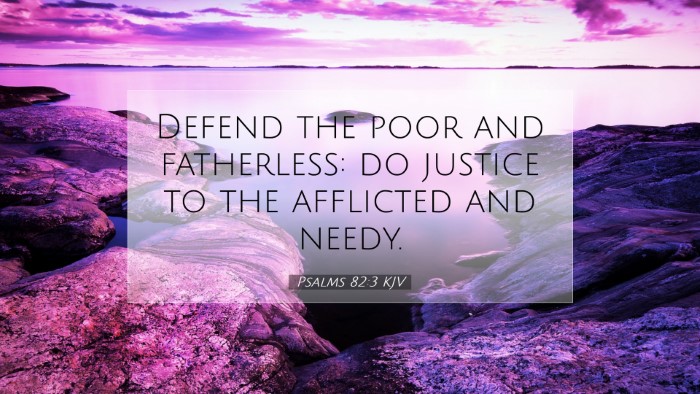Commentary on Psalms 82:3
Psalms 82:3: "Defend the poor and fatherless: do justice to the afflicted and needy."
Introduction
This verse from Psalm 82 is a profound declaration of justice, calling upon the leaders and judges to carry out their responsibilities with integrity and compassion. It emphasizes the need to protect the vulnerable and ensure that justice is served within the community. Various public domain commentaries shed light on the implications of this verse for theologians, pastors, and scholars.
The Call for Justice
In this verse, the psalmist is entrusted with a divine mandate to defend the poor and fatherless. This reflects God's concern for the marginalized in society. Commentators point out that the term "defend" implies active involvement and advocacy.
-
Matthew Henry: He emphasizes that God expects those in leadership to act as guardians for the helpless. Leaders must remember that they are accountable to God for their treatment of the underprivileged.
-
Albert Barnes: Barnes underscores that this call is not just a suggestion but a command. He notes that the commands to "do justice" and "defend" are inherently linked to the character of God Himself, who is just and righteous.
-
Adam Clarke: Clarke interprets "fatherless" as symbolic of all who lack protection and support. He highlights the need for societal structures that offer care and support for those without advocates.
The Poor and Afflicted
The terms “poor” and “afflicted” encapsulate a broad range of people within the societal spectrum who require assistance. Those who are poor often suffer injustices simply due to their vulnerable status.
-
Matthew Henry: Henry notes that the poor are often oppressed by the powerful, and it is the responsibility of those in authority to rectify such injustices through equitable governance.
-
Albert Barnes: He asserts that the poor and needy are often overlooked in society. The justice demanded here implies a practical application—making sure that the legal and social systems work in favor of those least able to defend themselves.
-
Adam Clarke: Clarke elucidates that the "needy" are those who find themselves in desperate circumstances, highlighting the need for compassion and actions that promote welfare for these individuals.
Theological Implications
The verse also serves as an important theological foundation for social justice within the Christian faith. It pushes believers to acknowledge that justice is not merely a human construct but rooted in the character of God.
-
Matthew Henry: He stresses that God's concern for the needy reflects His character, and thus believers are called to imitate God by advocating for justice.
-
Albert Barnes: Barnes points out that failing to meet these standards of justice constitutes a serious neglect of duty for any leader or individual in a position of influence.
-
Adam Clarke: Clarke argues that this verse speaks to the heart of God's law and His desire for His people to live out His justice in their communities, therefore living in alignment with His will.
Practical Applications
For pastors and church leaders, the implications of Psalms 82:3 involve actively engaging in social justice initiatives and community outreach to vulnerable populations. This verse encourages congregations to embody love and care through actionable support for those who are less fortunate.
-
Matthew Henry: He encourages practical involvement, suggesting that churches take up causes that focus on widows, orphans, and the marginalized, reflecting God’s heart for justice.
-
Albert Barnes: Barnes suggests formulating programs aimed at social reform and community support, embodying the principles outlined in the verse.
-
Adam Clarke: Clarke calls for a re-examination of church priorities, urging leaders to ensure their churches are instrumental in uplifting the afflicted and needy, rather than becoming inward-focused.
Conclusion
Psalms 82:3 is a powerful reminder of the divine expectation for justice and advocacy for the vulnerable in society. As highlighted by the insights of renowned commentators, this verse not only calls for action but also signifies the heart of God towards His creation. For pastors, theologians, and scholars, this passage stands as a foundational truth that compels action within the framework of faith. The responsibilities outlined in this verse resonate with the call to live out the kingdom of God in tangible ways that advocate for justice, support the weak, and demonstrate unwavering compassion.


